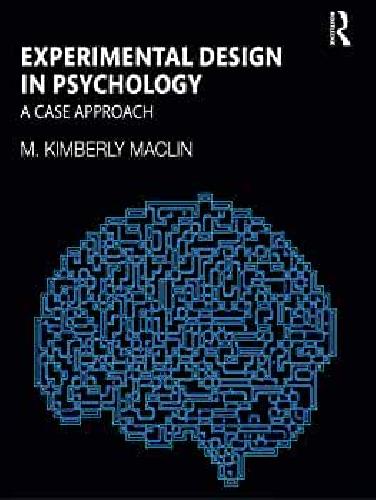Experimental design in psychology
M Kimberly Maclin
This text is about doing science and the active process of reading, learning, thinking, generating ideas, designing experiments, and the logistics surrounding each step of the research process. In easy-to-read, conversational language, Kim MacLin teaches students experimental design principles and techniques using a tutorial approach in which students read, critique, and analyze over 75 actual experiments from every major area of psychology. She provides them with real-world information about how science in psychology is conducted and how they can participate. Recognizing that students come to an experimental design course with their own interests and perspectives, MacLin covers many subdisciplines of psychology throughout the text, including IO psychology, child psychology, social psychology, behavioral psychology, cognitive psychology, clinical psychology, health psychology, educational/school psychology, legal psychology, and personality psychology, among others. Part I of the text is content oriented and provides an overview of the principles of experimental design. Part II contains annotated research articles for students to read and analyze. Classic articles have been retained and 11 new ones have been added, featuring contemporary case studies, information on the Open Science movement, expanded coverage on ethics in research, and a greater focus on becoming a better writer, clarity and precision in writing, and reducing bias in language. This edition is up to date with the latest APA Publication Manual (7th edition) and includes an overview of the updated bias-free language guidelines, the use of singular they, the new ethical compliance checklist, and other key changes in APA style. This text is essential reading for students and researchers interested in and studying experimental design in psychology.
- No. Panggil 150.724 MAC e
- Edisi 9
- Pengarang M Kimberly Maclin
- Penerbit New York Routledge 2020

